The Disability Royal Commission public hearing in September examined the use of psychotropic medication as a chemical restraint. A chemical restraint occurs when medication is not used to treat a diagnosed mental disorder, a physical illness or a physical condition but used for the purpose of influencing a person’s behaviour.
Advocates from around the country shared their observations and insights on the topic, reflecting an over-reliance on psychotropic medication to manage “behaviours” and inadequate oversight mechanisms and safeguards for people with disability.
This hearing primarily examined “Psychotropic medication, behaviour support and behaviours of concern”, with a particular focus on the Queensland jurisdiction. The witness list included representatives from Queensland Advocacy Incorporated (QAI) and Speaking Up For You (SUFY) in Brisbane, VALID in Victoria, Independent Advocacy North Queensland (IANQ) in Townsville and Council for Intellectual Disability (CID) in NSW.
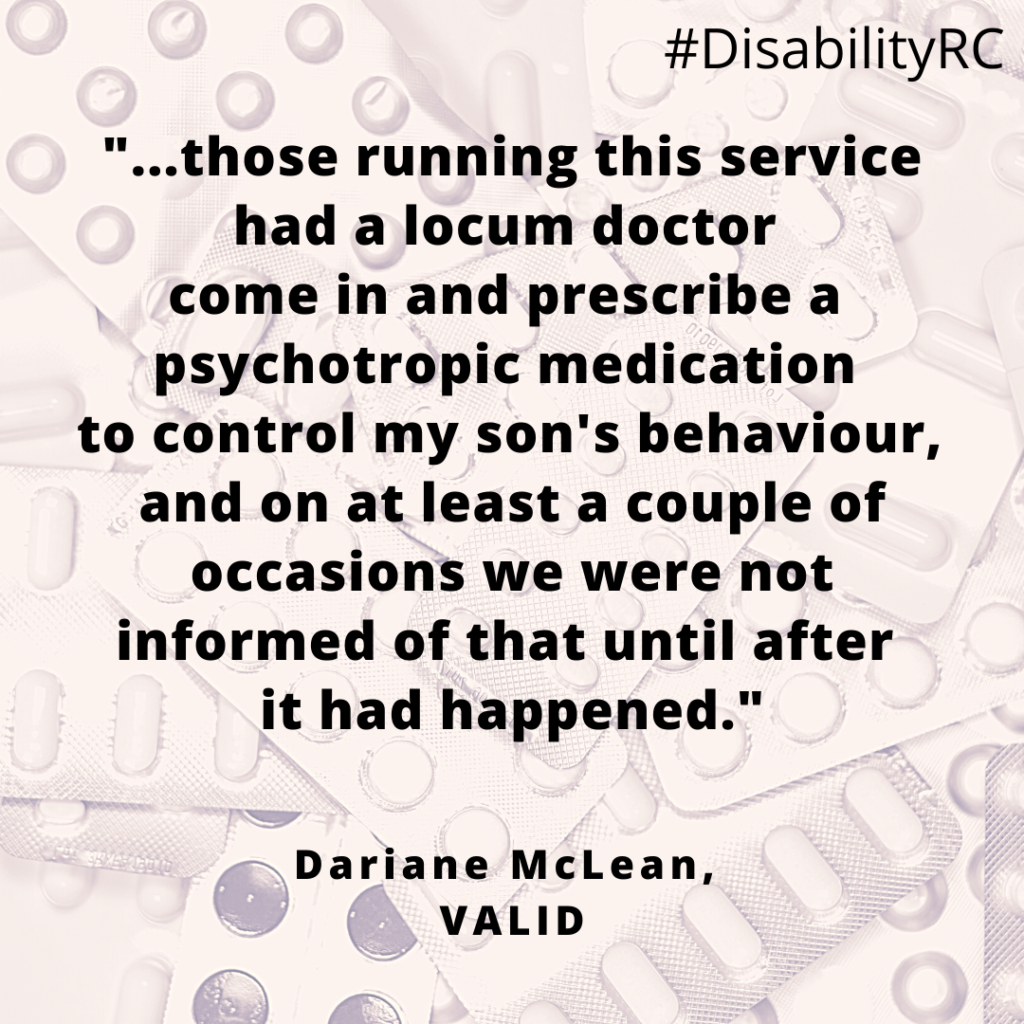
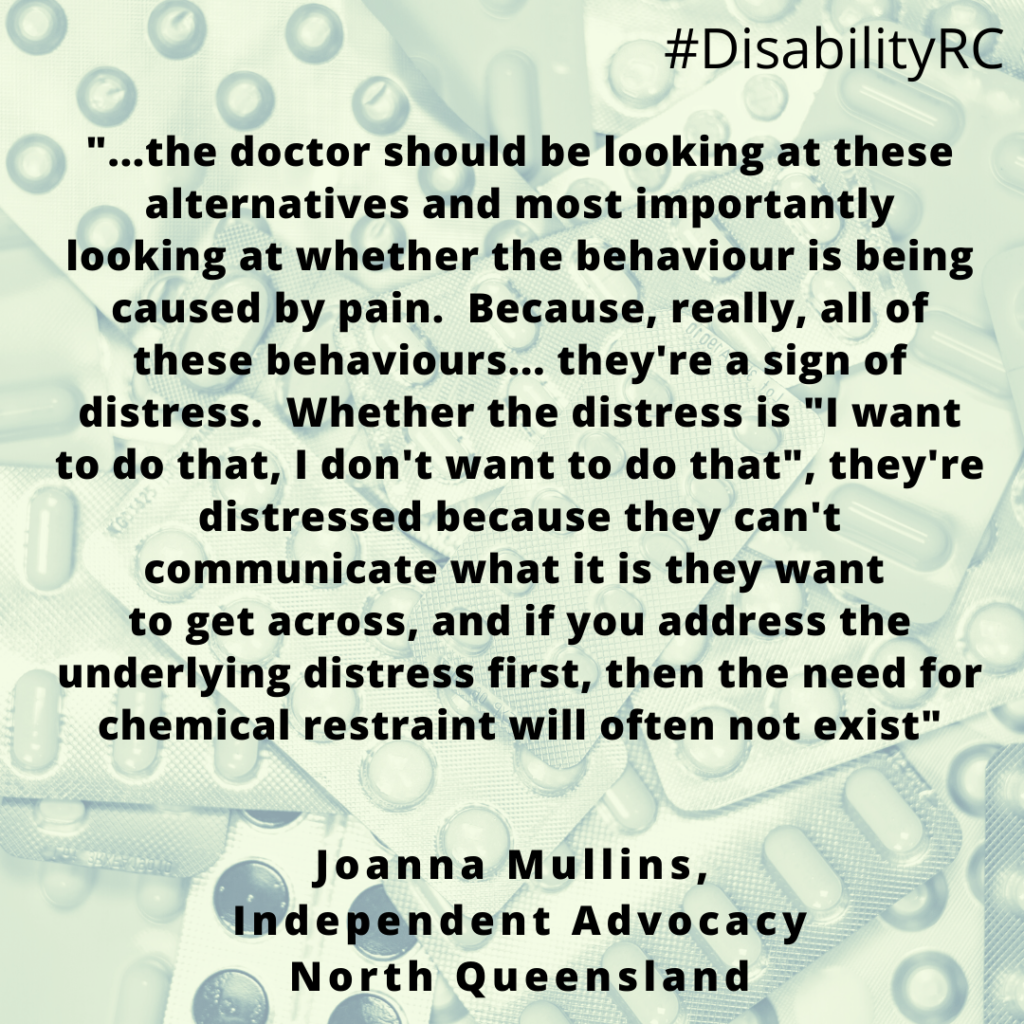
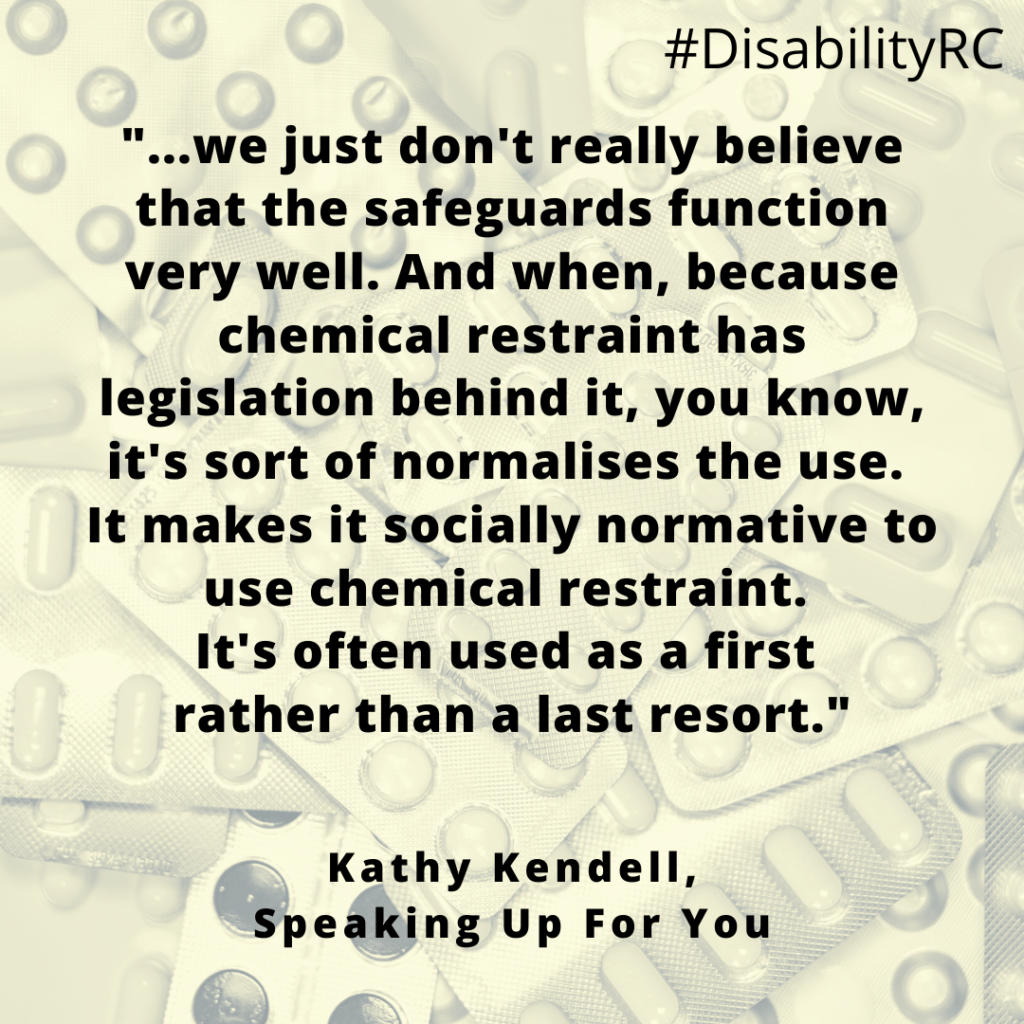
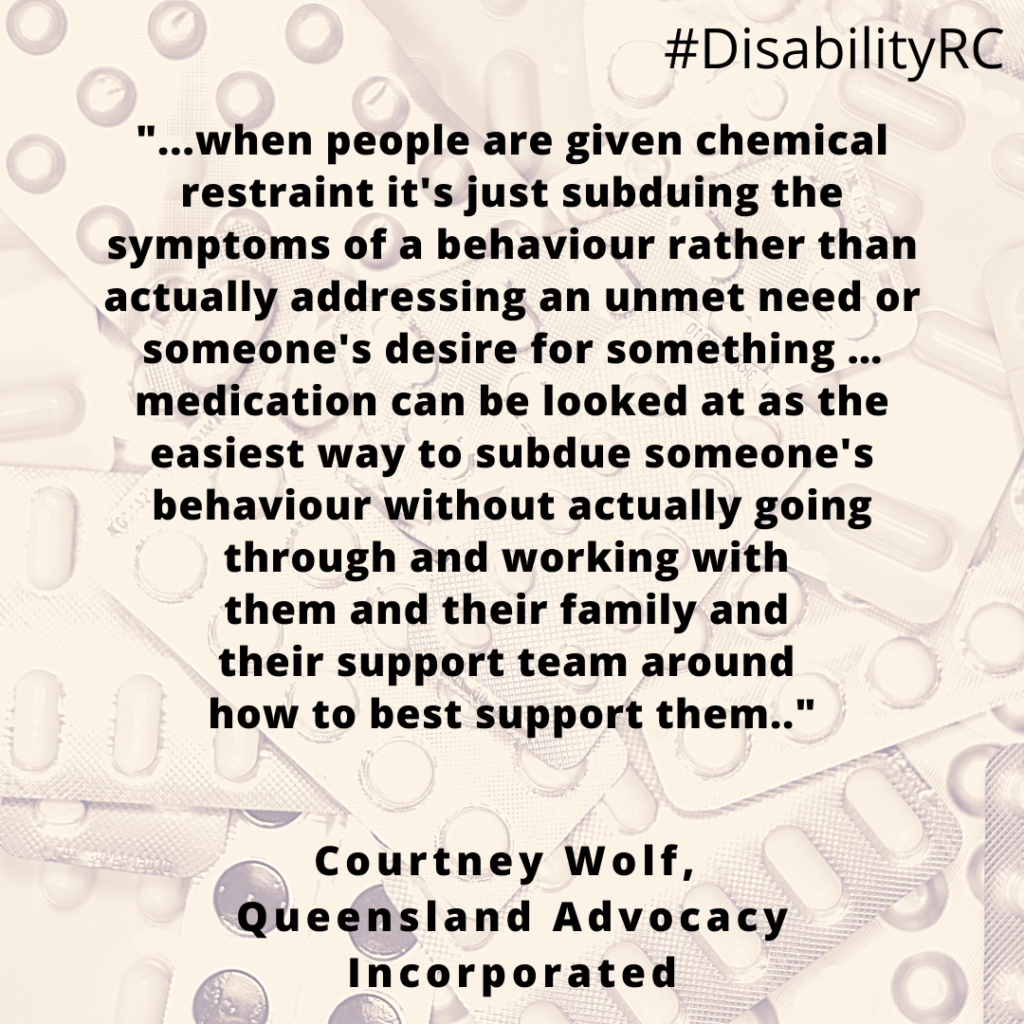
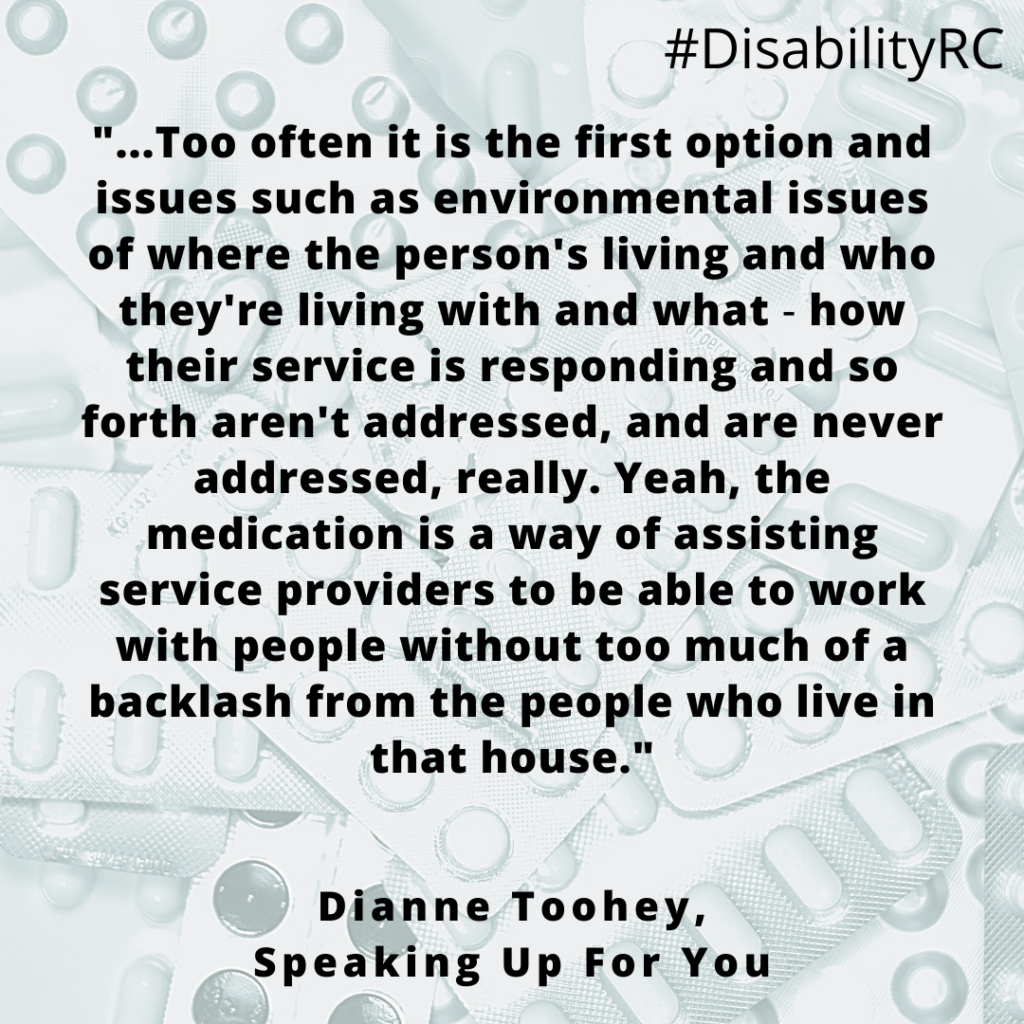
If you’d like to hear the words of disability advocates, you can find videos set to play from the relevant point in each day’s hearing, along with some direct quotes from Advocates and Self Advocates on DANA’s Spotlight on Advocacy page.



